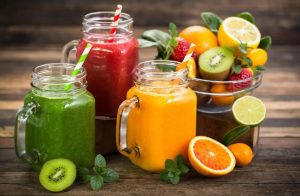
There are more and more young people with high uric acid. Obviously, if you don’t eat seafood or meat, and stop drinking, why is uric acid always high? There are quite a few such people. Frankly speaking, judging from the results of existing studies, a large part of the high uric acid is caused by congenital genetic factors.
However, the day after tomorrow through diet, weight loss, exercise, etc., can also help you play the “card” given by your parents better to a certain extent. In terms of diet, it is right to eat less seafood and drink less beer, but many people are likely to overlook another very important detail:
Sugary drinks
The “European Alliance Against Rheumatism (EULAR) Management Recommendations for Gout (2016)” provides “eat less” dietary recommendations for gout and hyperuricemia. There are actually three dietary recommendations, in addition to the well-known alcohol and high Purine food, there is another sugar-sweetened drinks (sugar-sweetened drinks).
Sugary drinks are the familiar cola milk tea and fruity tea. However, you may be curious about why sugary drinks have no purines. This starts with one of the most common misunderstandings.
Uric acid is not only related to the purines eaten
Uric acid is a metabolite produced by the body after purines are processed. What determines the content of uric acid in the blood is the process of “synthesis and excretion” of uric acid in our body.
In a healthy person’s body, the liver will process useless purines into uric acid, and then excrete uric acid through the kidneys and intestines. The entire smooth process is within a stable range.
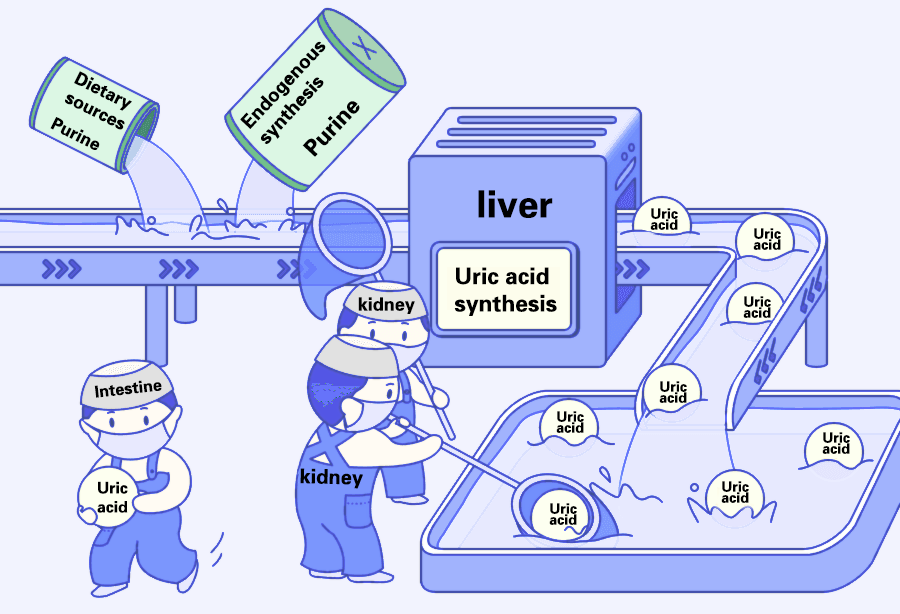
But once there is a problem in any link here, uric acid may rise. To put it simply, either the raw material has more purines, or less uric acid is discharged.
The problem of less excretion is more affected by genetic factors. That is to say, the ability of some people’s bodies to process uric acid in the blood is inherently worse than others, and some people can only relieve it with drugs.
Part of the problem of excessive raw materials is related to diet, which is why people with gout and hyperuricemia are advised to control the intake of purines.
But the other major source of purines, which many people don’t know, is the purines produced by ourselves, which is also called endogenous synthetic purines.
In other words, even if you don’t eat anything, the body’s own metabolism will produce purines.
The scary thing is that some foods are very “scheming”. Although they do not contain purines, some of the ingredients contained in them can promote the body to synthesize more purines, which will increase uric acid.
Sugary drinks are a typical representative among them.
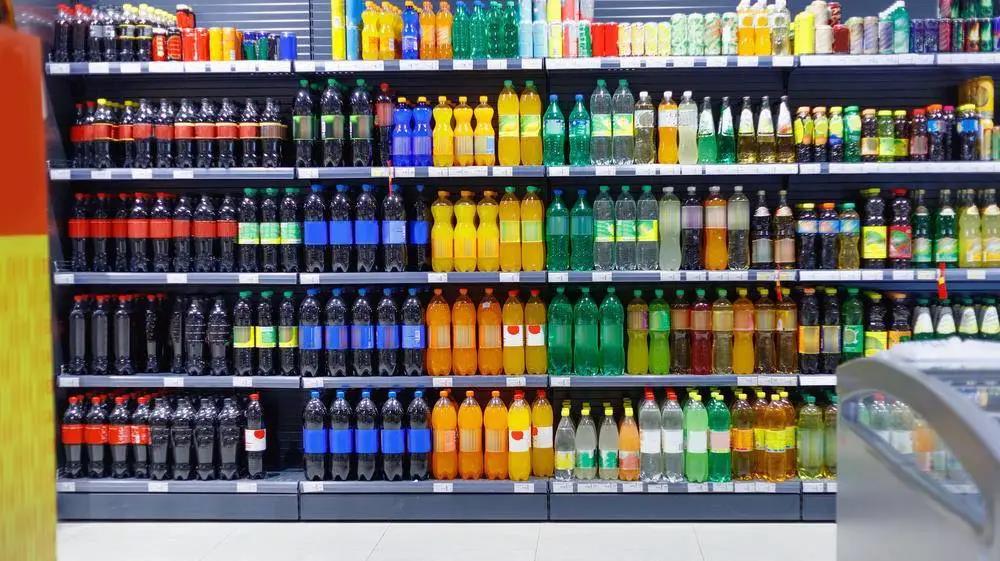
Many patients with high uric acid are unaware of the dangers of sugar-sweetened beverages. They may even think that substituting beverages for alcohol is a “healthy” dietary choice, which is really not worth the gain.
Sugary drinks may also increase the risk of gout
Sugar-sweetened beverages are not just as simple as increasing purines and uric acid in the body. Some studies have confirmed that people with higher intake of sugar-sweetened beverages are more likely to develop gout even if they did not have gout.
Two studies by Harvard University scientists published in the top medical journals BMJ and JAMA followed up 46,393 men and 78,906 women respectively for more than ten or twenty years, and reached five conclusions worth sharing:
➊ Men who drink 1 sugar-sweetened beverage (approximately 250-300 ml, less than a can of Coke) a day on average have an average increase of 44% in the risk of new gout compared to those who basically do not drink;
➋ Women drink 1 sugar-sweetened beverage a day, and the incidence of new gout is twice as high as that of men;
➌ On this basis, if you drink more sugar-sweetened beverages, the risk increases will be higher;
➍ Even if the sugar-sweetened beverage is replaced with pure fruit juice without sugar, the risk will still increase, and the effect of increasing the risk may even be greater than that of sugar-sweetened beverages;
➎ Sugar-free beverages without artificial sweeteners without fructose will not increase the risk.
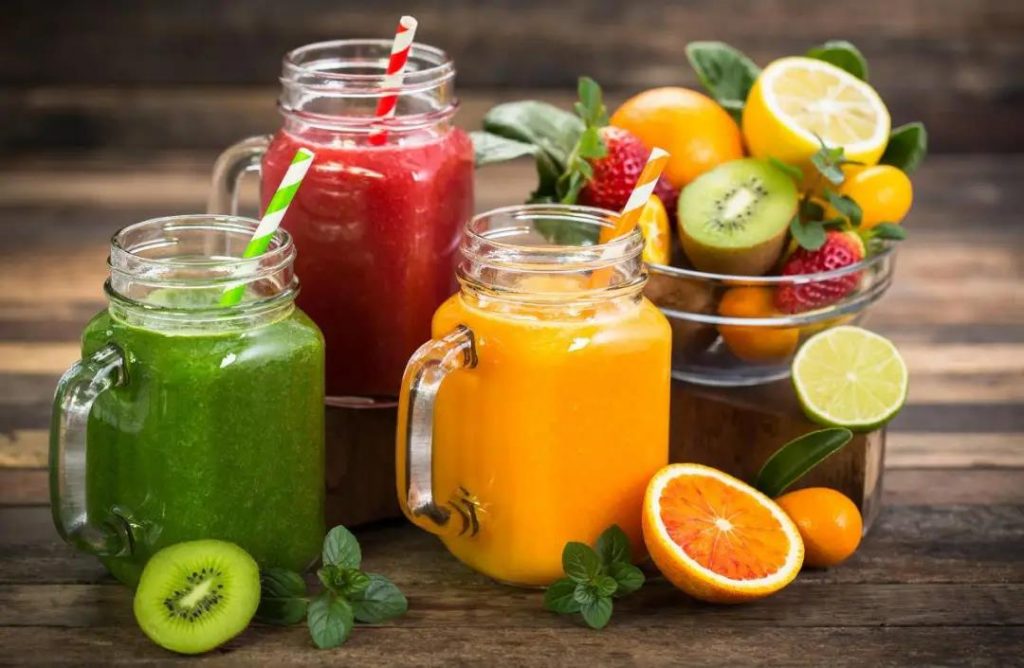
In other words, sugar-sweetened beverages may not only prevent uric acid from falling, but may further induce gout, and juices also need to be vigilant.
Fructose may be the culprit of elevated uric acid
Why is a small bottle of sugary drinks so harmful? From the known research, it may be the fructose in it that is doing things.
Fructose is a special kind of sugar.
When the liver processes all other sugars, there are various mechanisms to adjust the speed of processing these sugars to ensure that things are done in an orderly manner without rushing.
Only when dealing with fructose, it is the kind of madness that the accelerator pedals to death and the brakes are not installed. This crazy process will promote the production of more purines eventually.
The liver will constantly use these accumulated purines to synthesize uric acid, which directly results in an increase in blood uric acid.
Moreover, studies have also found that the molecular structure of fructose is similar to uric acid, which may cause the kidneys to reduce the ability of the kidneys to excrete uric acid. This “two-pronged” effect makes it difficult to imagine whether uric acid is high.
(It doesn’t matter if you don’t understand it! The point is to induce more purines)
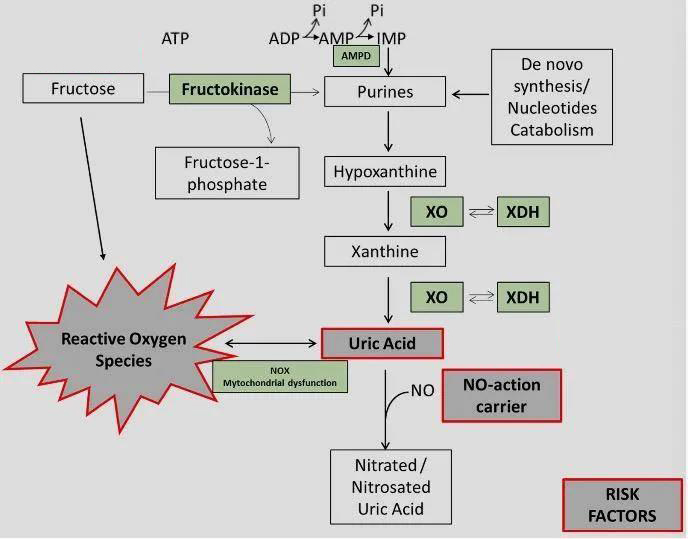
Karolinska Institutet conducted a human study, part of which was to allow healthy people to drink beverages with the same calories but different fructose content.
The results showed that the subjects who drank the beverage with the most fructose, after drinking 35 grams of fructose, the blood uric acid level increased by an average of 15% compared to before drinking.
And 35 grams of fructose is just the amount of fructose contained in a bottle of 600 milliliters of cola.
Almost every sugary beverage contains fructose
The name fructose may be unfamiliar to everyone, but in fact, most sugary drinks in life contain fructose.
If you look through the ingredient list of a drink occasionally, you can find out which ingredients appear most frequently in the ingredient list of sugary drinks?
White sugar? crystal sugar? honey? sucrose? Fructose syrup?
It feels like there is no “fructose”? wrong! In the end, it is inseparable from fructose:
White sugar, rock sugar, brown sugar
= 99.9% sucrose (one part glucose + one part fructose)
Honey
= More than one-third of fructose + other sugars
Fructose syrup (high fructose syrup)
= A mixture of fructose and glucose in different proportions
Crystalline fructose
= Pure fructose
The syrup added in the milk tea that many people love to drink is fructose syrup.
And orange juice, apple juice and other juices, because they are squeezed from fruits rich in fructose, they also contain a lot of fructose, so they are really caught off guard!
For example, a medium-sized (175 grams) apple has 11 grams of fructose. When you drink a bottle of 500 milliliters of apple juice squeezed from 3 apples, you may consume more than 30 grams of fructose.
It’s better to eat the whole fruit, so give up sugary drinks.
Someone must ask: There is a lot of fructose in fruit too? Then we must not only beware of drinks, but also eat less fruit?
Those who love fruit, don’t panic, fresh fruit can still be eaten normally.
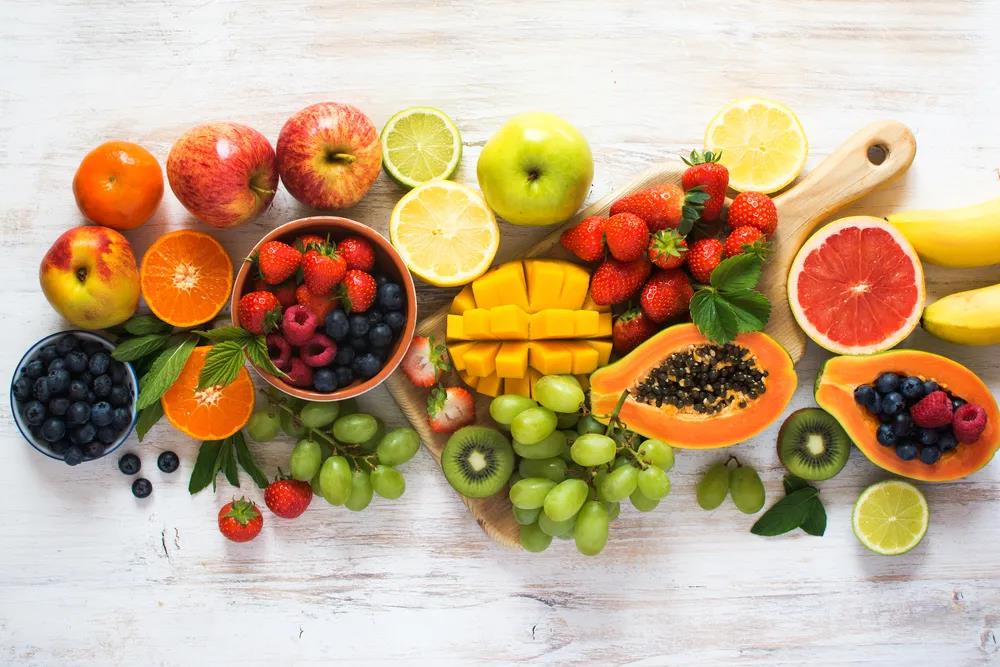
Judging from the existing very limited research results, other beneficial ingredients in fruits besides fructose, such as dietary fiber, vitamin C, flavonoids, catechins, etc., may alleviate the harm of fructose to a certain extent, thereby Let fructose not be as powerful as it is in sugary drinks.
Especially dietary fiber, it can slow down the absorption rate of fructose, thereby putting the brakes on the process of fructose entering the liver; vitamin C may promote the excretion of blood uric acid from the urine to a certain extent.
In addition, some fruits have low fructose content, which is less likely to cause problems. With the other ingredients mentioned above, they may even have a loss of uric acid.
In short, according to existing research, eating half a catty of fruit every day is not a big problem. If you are still worried, try to choose low-fructose fruits, such as mulberries, strawberries, grapefruit, etc.
As for drinks, look at the sugar content of this:
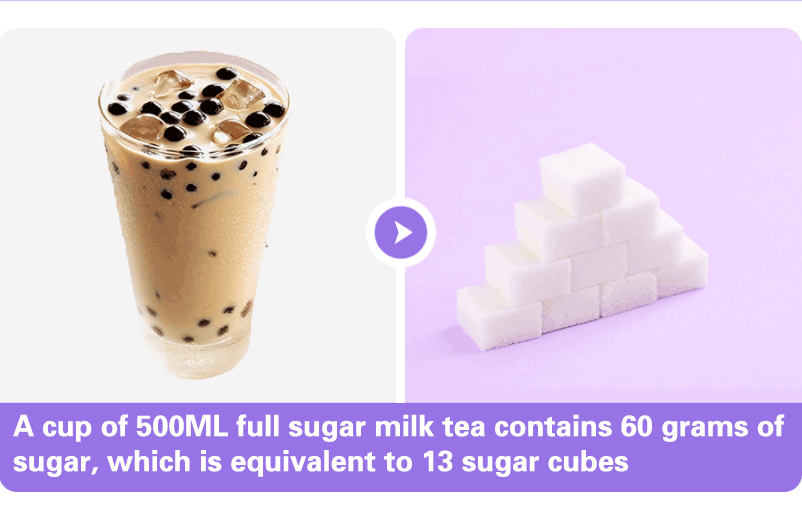
For patients with hyperuricemia and gout, drink less sugary drinks (including fruit juice) if you can drink less, or quit if you can quit.
Comments